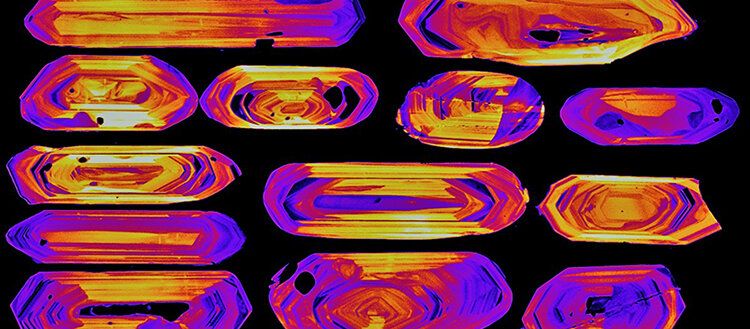Most active volcanoes on Earth are dormant, meaning that they have not erupted for hundreds or even thousands of years, and are normally not considered hazardous by the local population. A team of volcanologists from the University of Geneva (UNIGE), working in collaboration with the University of Heidelberg in Germany, has devised a technique that can predict the devastating potential of volcanoes. The scientists used zircon, a tiny crystal contained in volcanic rocks, to estimate the volume of magma that could erupted if Nevado de Toluca volcano (Mexico) wakes up from its dormancy. Up to 350 km3 of magma —about four times the volume of water stored in Lake Geneva— are currently lying below Nevado de Toluca and an eruption could bring devastation. The new technique, applicable to most types of volcanoes across the globe, is described in the scientific journal Nature Communications.
The largest volcanic eruptions in the last 100 years were sourced from volcanoes that do not erupt frequently and therefore fly under the radar of scientists. Yet today, 800 million people around the world live close to volcanoes and are potentially at risk. A determining factor for the dangerousness of volcanoes is the volume of eruptible magma stored in their bellies, as this is related to the magnitude of future eruptions. Unfortunately, this magma is stored at inaccessible depths of 6 to 10 km and cannot be directly measured.
